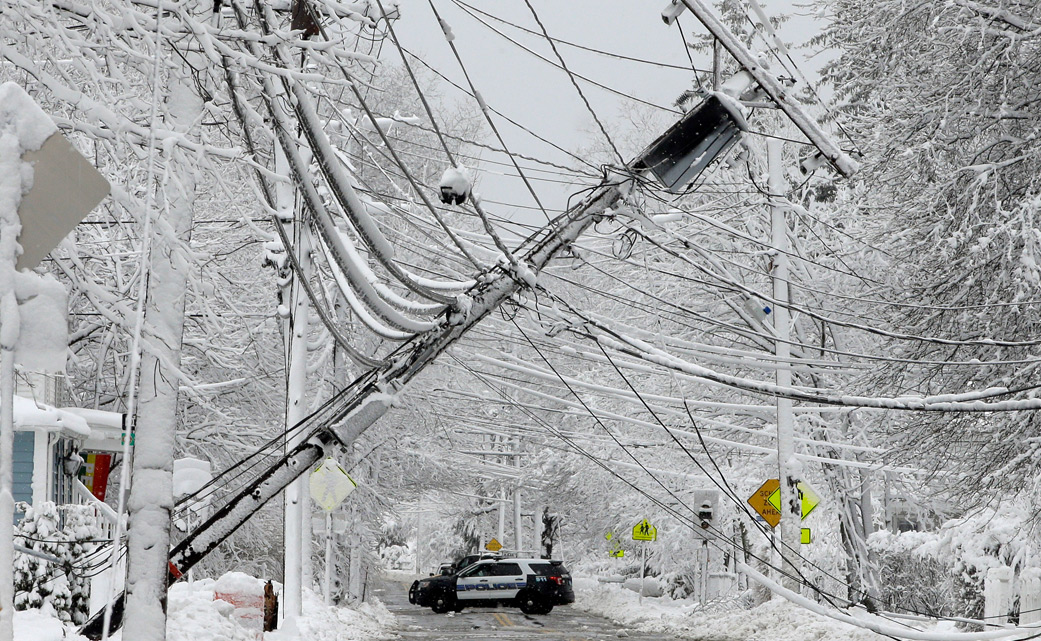Stay Safe During Storms and Power Outages

Safety Guidelines
- Be attentive to severe weather warnings.
- Leave your home if authorities order an evacuation, especially if your home is in an area that floods easily.
- In frigid weather, if your power is likely to be out for more than a few days, you may want to ask your plumber about draining your home’s water pipes so they don’t freeze and burst.
- Your automobile is a good place to charge your cell phone or stay warm during a storm, as long as you keep it well ventilated and don’t go to sleep while the motor is running.
- If you don’t have surge protectors, unplug your sensitive equipment. Voltage irregularities can occur for any number of reasons during or after a storm, especially if there has been damage on or near your home.
- View USDA guidelines for food safety if your power has been out for more than 4 hours.
Downed Power Lines
- Always make sure to stay as far away as possible from downed wires and trees that might have wires caught in them.
- Report any downed wire you may see by calling us or local emergency personnel.
- Stay as far away as possible of all fallen tree limbs and electrical wires, as well as anything they are touching – such as puddles and metal fences. Assume all downed wires are “live” and stay away.
- If you’re in a vehicle and downed wires are on the car or across the road, stay in your car until emergency crews arrive to handle the energized wires. It is safe to use a cell phone while inside your car.
- Don’t drive over downed lines, and if a downed line is in or near water, keep your distance from the water, even a little puddle.
Generators
Follow these safety guidelines to ensure everyone’s safety:
- Never install a portable generator inside a home or in any other enclosed space—even if windows are wide open.
- Generator exhaust contains carbon monoxide, a poison you cannot see or smell. Using a portable generator indoors can kill you within minutes.
- Never try to power your house by plugging a portable generator into a household outlet. This can feed electricity back into the power lines—enough to electrocute a line worker or a neighbor on the same circuit.
- The safe way to connect a generator to your existing wiring is to have a licensed electrical contractor install a transfer switch, like Tower Generator. When improperly installed, home generators of any size – even small ones – can backfeed enough power onto the electrical grid where it is “stepped up” to very high voltages.
Emergency Shelter
Call your local fire or police department or local Red Cross chapter to locate an emergency shelter if you or your family need heat, air conditioning, power or a more comfortable place to wait out a power outage, particularly in extreme weather.
Source: https://www.eversource.com/content/ct-c/residential/outages/storm-preparedness/during-a-storm


